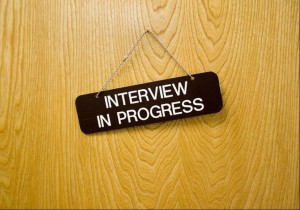 It’s the moment you’ve been waiting for – you are about to be interviewed about your latest book. Common sense says this should be easy, answering questions about something that you’ve been completely immersed in for months, if not longer. But, nerves and fear often trump knowledge when it comes to the interviews and even veterans confess to stage fright.
It’s the moment you’ve been waiting for – you are about to be interviewed about your latest book. Common sense says this should be easy, answering questions about something that you’ve been completely immersed in for months, if not longer. But, nerves and fear often trump knowledge when it comes to the interviews and even veterans confess to stage fright.
Doing public relations for authors, thought leaders, and other projects, has given us a solid perspective on how best to prep for your big moment. While one-size-fits-all advice generally tends to fall flat in our customized world, there are a handful of suggestions to consider before you embark on the effort to excite the world about your latest project.
- Do your research. Since Googling has become as commonplace as talking or walking in our world, it is imperative to commit to a bit of digging on the journalist you will be speaking with, as well as the publication she writes, hosts, edits, or produces for. Sure, you are familiar with The New York Times, but it is worth the effort to peruse the section or column where your interview will appear. This is even more crucial if you’ll be working with a publication you are not familiar with. Go a step further and take a look for the journalist on Twitter and LinkedIn, two social media sites that lend themselves most readily to business use. Here you’re likely to learn what stories that reporter has been covering, hints on their personal interests, previous jobs, and alma mater. Finding a point of common interest can help get you off to a solid start. It also signals to the journalist that you care enough to do your homework and that you value her time.
- Don’t over promote your book. This one may seem a bit counterintuitive, but repeatedly referencing your latest book or project gets offensive very quickly. Stay on topic with what the reporter wants to discuss. If you’re doing broadcast, ask the host before your interview if they can mention the book title at the beginning and end of the interview and, if it’s television or video, ask that they do a screen shot of the book jacket. Be liberal with content from the book, but use a light hand when repeating the title.
- Eliminate the “ums” and “uhs”. Even if you aren’t a big offender when it comes to filler words or sounds, they have a habit of creeping in when the pressure turns up just a notch. Try writing the word or phrase on a Post-it® note and place it on the top of the notes you’ll be referencing or someplace where you can see it, but the interviewer or audience cannot. That one small visual reminder goes a long way in helping you become aware of your verbal tics and eventually, rid yourself of them.
- Be valuable. This is advice we dispense liberally because it honestly can’t be stressed enough. Your job is to be of value to the journalist, the audience, or, ideally, both. If possible, get a solid idea of what specifically the interview will cover and come prepared to not only address that, but to substantially add to the public conversation around the topic. Avoid parroting conventional wisdom. Have an opinion and be able to defend it.
- Say thank you. Follow up after your interview with a brief note of thanks and any information that might be helpful to the reporter for their story or in their ongoing work. Surprisingly few people do this, so the impact is magnified. If possible, include your cell phone number and advise the reporter that you are happy to serve as a source for them. Earning a spot in the reporter’s rolodex is the best outcome of all.
Authors, experts and thought leaders all tend to get very comfortable with interviews about two weeks into the promotional process. Some practice beforehand with your publicist, spouse, or willing colleague can speed up your learning curve and, ideally, make even that first interview one you’re proud to claim.